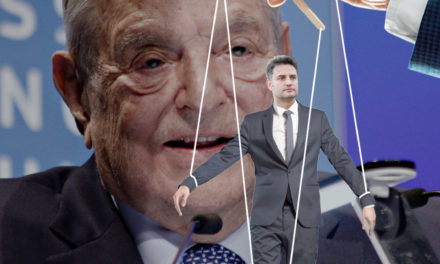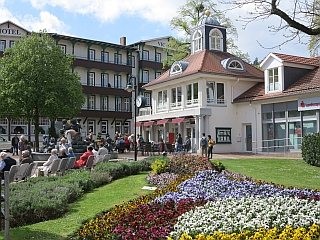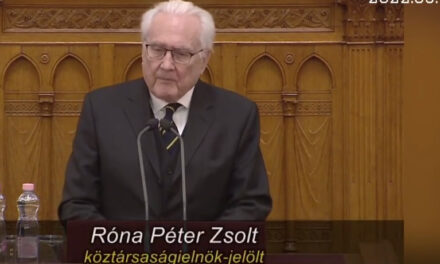Could there be a theory that we should not train excellent doctors, engineers, economists, lawyers, and turners, but rather lure them here from abroad? And even if they come, can we count on them if, say, the country faces difficulties? Are they also able and ready to stand up for our interests?
The power of a hummingbird - the smallest bird species known today - is best illustrated by a parable. Jean Francois Chemain: Tare - An opportunity for France? An excerpt from his essay speaks for itself: "One day there was a huge forest fire. All the animals watched the catastrophe in terror, bewildered and helpless. The little hummingbird was alone circling, going to fetch water in its beak to pour on the fire. After a while, the armadillo, annoyed by this ridiculous commotion, called out: You hummingbird! You are crazy? You won't put out the fire with these drops of water. To which the hummingbird replied: I know, but I will give my part."
And are we humans really doing our part?The current state of Europe and its social composition require "firefighting" in order to avoid ever-increasing chaos. How we think and where we are headed is well illustrated by a story similar to which we encounter more and more often in everyday life. One of the most recent cases, when a young football player born and raised in France, visiting the adult football team of his parents' host country - France, suddenly realized that he is not French, but Algerian, and that he would rather be in the Algerian national eleven, making use of his knowledge , which he obtained at the French football academy. Come on?! Based on normal logic, the young "pathfinder" should have fallen under the bench between the two chairs as a result of his decision. After all, the French - because of his behavior - no longer claim him, while Algeria thanks him very much, he doesn't ask for anything. It didn't happen that way. Algeria was happy to fulfill the request and included him in its national team. It should be noted that our hero remained a football player of the lucrative French first division Lyon when there is no national team competition.
Before anyone accuses the author of this article of being anti-French, it must be stated that the above incident also happens here in Hungary.Those otherwise talented soccer players born and trained abroad, who are not outstanding enough to make it to their home country's national team, sometimes realize their Hungarian roots and apply to wear the Hungarian national jersey. In other respects, it is not a problem if someone finds their way back to being Hungarian, even if they do so in a slightly transparent way. At most, the fact that neither the French goalscorer nor the boys who became Hungarians formally settle in their chosen new country causes some confusion in the mind of the outside observer.
After the introduction, which does not lack a critical edge - without hurting anyone's feelings - a more general consequence must be drawn from the phenomena. The young people in the example, like the majority of celebrities known to the public, became excellent athletes on their own, while others became artists and scientists.
At the same time, they are young people who, through their example, are responsible for people, both in a positive and, of course, a negative sense. They are role models – whether they like it or not – who are followed by a lot of people through today's fashionable social platforms. But what are these exemplary situations? Would Europe be so colorful that it doesn't even matter who and how they live their identity? Unfortunately, today the concepts - nationality, place of birth, homeland, i.e. identity - have become interchangeable, just like any other business construction. And surprisingly, the option that has become fashionable is not regulated by social expectations either.
In simpler terms, they are literally forced into situations where they feel like they have become more equal among equals.Changing the country and citizenship is part of people's right to self-determination, but it is a step based on a longer protocol and can only be performed once by serious people. It can neither be a business interest nor the subject of speculative considerations. In sports, including football, it is an international trend that the clubs of some countries look like a world team. It is a daily example that richer teams employ almost only foreign players. Are the Hungarian prodigies of our childhood turning in their graves when they see that their former clubs are mostly played by players bought from abroad?
And then, let's end the emotional, seemingly one-sided negative findings here, as there is an important difference between the life situation of foreign star clubs and the Hungarian national football team. Abroad, money enables clubs to have an international "colour". In our country, from a civilian point of view, the hiatus resulting from the lack of supply gives young people from abroad a chance to aim for membership of the Hungarian national team, even if they speak a foreign language. Abroad, the supply base is strong, while at home the positive consequences of training children and young people are felt less. Not so long ago, a young Hungarian player spoke about this with emotion, stressing that the reason he hangs up his football boots at the age of twenty-two is because, in his opinion, Hungarian clubs do not rely on domestic players.
Could there be a theory that we should not train excellent doctors, engineers, economists, lawyers, and turners, but rather lure them here from abroad? And even if they come, can we count on them if, say, the country faces difficulties? Are they also able and ready to stand up for our interests?Although we could ask this from time to time of the native Hungarians, that is, of ourselves as well.
Because the topic is current. The world is in turmoil and apparently crazy plans are being made on the political playing fields. As long as an athlete prepares first, gathers strength, lives a life of renunciation, and thus achieves success, the majority of the actors of the power that governs Europe testify to complete incompetence, while having control over the fate of nations. As a result, it is perhaps no longer surprising and unacceptable that some of the prominent representatives of football interpret the concept of belonging to the nation broadly. Our continent is facing challenges that we can't really fathom. In particular, there will be an emergency if we forget what the power of the little hummingbird ready to put out the fire represents.
Featured Image: Facebook












